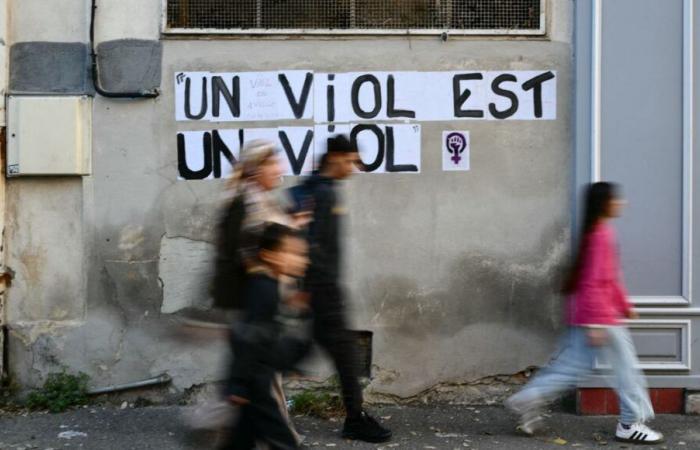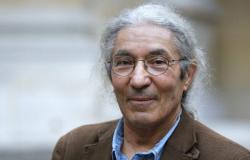The Mazan rape trial began before the Avignon criminal court on September 2. Are on trial, until December 20, 2024, 51 men accused of having raped Gisèle Pelicot when she had been previously drugged by her husband. The enormous impact of this affair in France and abroad can be explained by the scale and duration of these crimes, but also by the courage of the victim who decided to refuse being held behind closed doors by testifying publicly. Since the start of this historic trial, many novelists have tried to think the unthinkable through their words: Lola Lafon, Martine Delvaux, Isabelle Sorento, Camille Kouchner for example, wrote columns for the newspaper Libération.
The writer Yannick Haenel also chronicles this trial for Charlie Hebdo and describes the difficulty of such an exercise, it is clear that the status of writer fades into the background of that of citizen: “I think that doubt, questioning, comes from a culture of nuance which is the complete opposite of rape culture. I went there, I want to say, as a citizen. I am not at all the chronicler of this trial, not even for Charlie Hebdo I wrote some texts because I want to know, that's what writing is; , the Mazan rapists are people who don't want to know, who never wanted to know. So certainly, their lives have been complicated, most of them are in sexual misery, but above all, there is something at home. , this desire not to know.”
Feet on the ground Listen later
Lecture listen 29 min
News of the day
- The writer Miguel Bonnefoy won the Femina Prize for best novel for his latest book The Jaguar's Dreama baroque family epic in Venezuela published by Rivages. An additional reward for the Franco-Venezuelan author, already winner of the Grand Prix du roman of the French Academy. In the other categories, the Femina Prize for Foreign Novel was awarded to the Chilean writer Alia Trabucco Zeran, for his book Own published by Robert Laffontwhile the Femina essay prize was awarded to Paul Audi for Stand your grounda work published by Stock which deals with anti-Semitism.
- The Minister of Culture wishes to organize in 2026 and 2027 a major national celebration on the occasion of the bicentenary of the invention of photography. Although we do not know precisely the date of the first photograph in history which is entitled “Point of view taken from a window of the Gras property in Saint-Loup-de-Varennes”, historians consider that it was taken around 1826 and this photo is the work of the French Nicéphore Niépce Rachida Dati has already announced the creation of a scientific committee to plan these celebrations which will be chaired by Dominique de Font-Reault, curator at the Louvre museum.
- Attendance in theaters was up sharply in October thanks to French films. More than 15 million spectators went to the cinema last month, 10% more than last year during the same period. These are the best figures for the month of October since 2020. An increase which can be explained in particular by the success of films Love phew by Gilles Lellouche which has already attracted 3 million spectators and the biopic on Charles Aznavour which has won over more than 1 million. These figures confirm the good health of French cinema since of the 140 million tickets sold since January, 45% have been for French films.
Evening questions: the debate Listen later
Lecture listen 38 min
France






